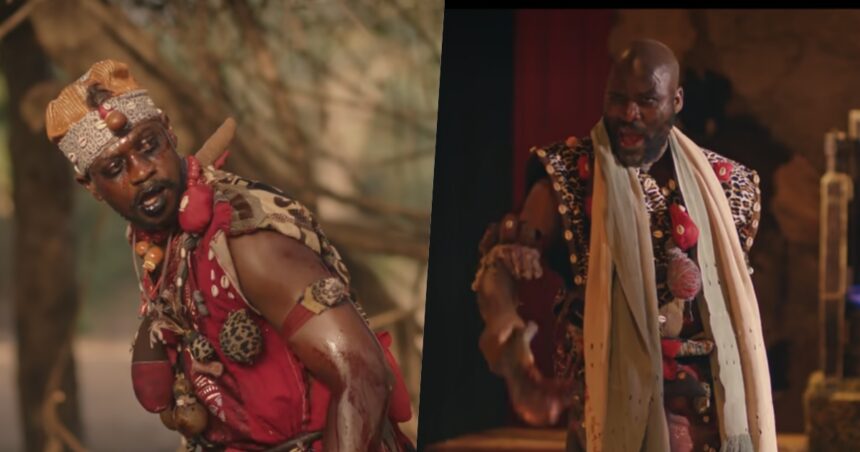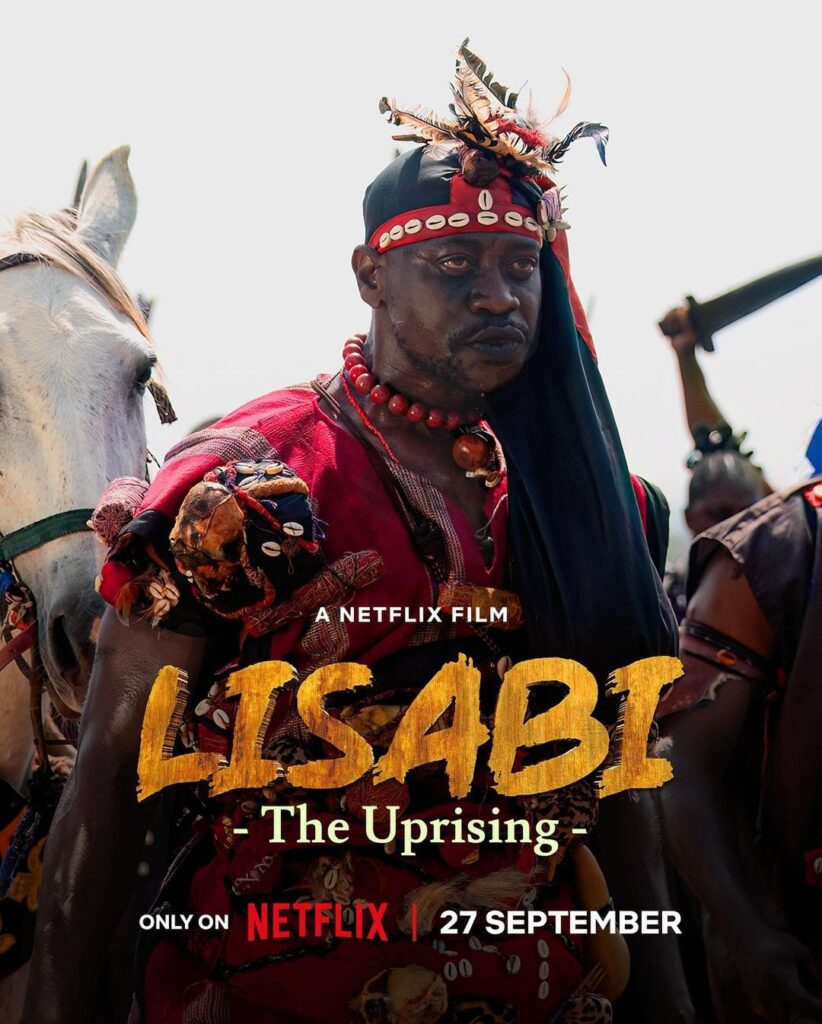The historical legacy of the Oyo Empire continues to fuel contemporary Nollywood narratives, both in fiction and dramatized retellings of real events. Kunle Afolayan’s “Anikulapo” has achieved significant acclaim by setting its story in this rich historical context. Similarly, Bolanle Austin-Peters’ “House of Ga’a” intertwines the life of a notorious military figure with fictional elements, generating considerable buzz. Now, “Lisabi: The Uprising” emerges, drawing from the untold stories of the Oyo Empire that are increasingly being brought to light through film.
“Lisabi” is a two-part movie, with the first installment, “Lisabi: The Uprising,” recently released on Netflix. The sequel, “Lisabi: A Legend is Born,” is scheduled for January of next year. This epic tale centers on Lisabi, an extraordinary farmer who rises to lead a revolution against the oppressive forces of the Oyo Empire to liberate his people.
Plot
The film opens dramatically with Olodan (Femi Adebayo), who, having been beaten and dragged before the Alaafin (Odunlade Adekola) for his defiance and failure to pay tributes, faces execution. In this tense atmosphere, Sangodeyi (Ibrahim Chatta) is appointed Chief Tribute Collector for Egbaland, ruling with brutality and terrorizing the local populace. Meanwhile, Lisabi (Lateef Adedimeji) and his best friend, Osokenu (Bayo Adebayo), navigate their bond as tragedy strikes: Sangodeyi rapes Abebi (Rosaline Afije), Osokenu’s bride-to-be, on their wedding day.
This gripping narrative co-written by Yinka Olaoye and Niyi Akinmolayan promises to shed light on a crucial chapter of history while resonating with modern audiences.
“Lisabi: The Uprising” serves as a tribute to the resilience of the Egba people in their struggle against the Oyo Empire. Executive producer Lateef Adedimeji, an Egba himself, honors the legendary figure of Lisabi and the broader cultural heritage of his community.
This film directed and co-written by Niyi Akinmolayan is action-driven, primarily focusing on the subjugation of the Egba by oppressive tribute collectors. While the action can effectively propel a narrative, the lack of inventive choreography and engaging dialogue here leads to a sense of monotony, particularly as the film approaches its one-hour mark.
Character Analysis
In recent discourse surrounding Nollywood, a common critique has emerged regarding the reliance on A-list actors in films, particularly in the epic genre. This concern is poignantly echoed in “Lisabi,” where the presence of marquee names seems more a facade of grandeur than a necessity. While featuring well-known actors can elevate a film, the execution here raises questions. Too often, these prominent figures are relegated to minor roles, their talents underutilized in a story that could easily accommodate emerging talent.
Femi Adebayo’s portrayal of Olodan feels particularly miscast, while Odunlade Adekola, as the Alaafin, appears trapped in a cycle of banal dialogue and predictable action. One wonders why such esteemed actors are cast in roles that could be handled by less experienced performers, suggesting a missed opportunity for richer character development.
However, Ibrahim Chatta emerges as the standout of the film, delivering a performance that not only captivates but also eclipses the titular role of Lisabi, played by Lateef Adedimeji. Chatta’s prowess infuses the narrative with a vitality that the other characters sorely lack.
Technical Aspects
Adding to the film’s visual appeal is Niyi Akinmolayan, a director known for his audacious approach to the use of special effects. His bold use of CGI leaves an impression, even if it occasionally strays into the realm of excess. In the end, while “Lisabi” showcases some compelling elements, it ultimately raises critical questions about casting choices and narrative depth in Nollywood’s ongoing evolution.

Movie Review
As with many ambitious Nollywood productions, “Lisabi: The Uprising” suffers from a convoluted plot. It attempts to juggle multiple storylines: the corruption of Sangodeyi, Lisabi’s friendship with Osokenu, and the romantic subplot between Osokenu and Abebi. Unfortunately, these elements fail to coalesce into a cohesive narrative, resulting in a lack of emotional depth that could otherwise resonate with viewers.
Perhaps the subsequent installment, “Lisabi: A Legend is Born,” will provide the context and development necessary to appreciate this initial entry, which, at present, leaves much to be desired.
Final Verdict
Rating: 5.5
















